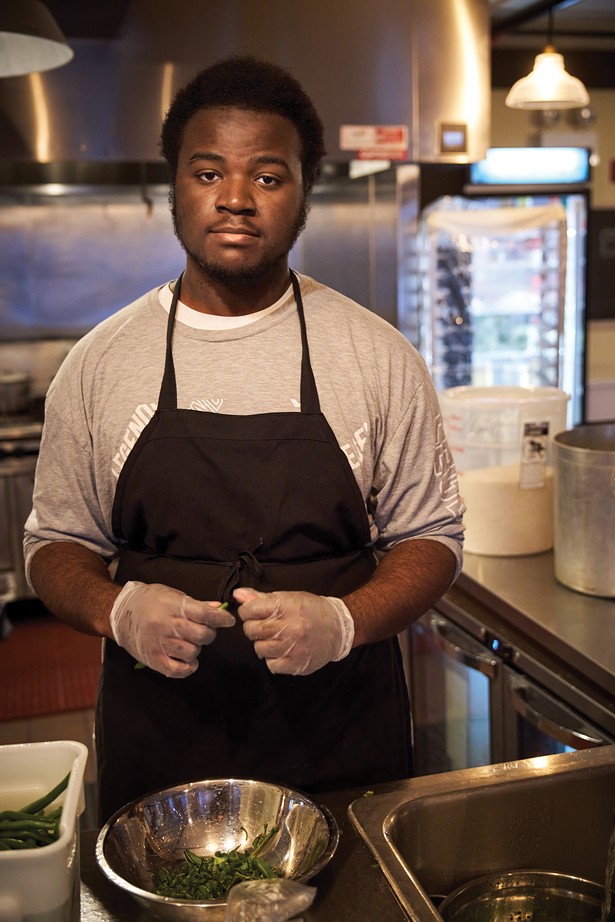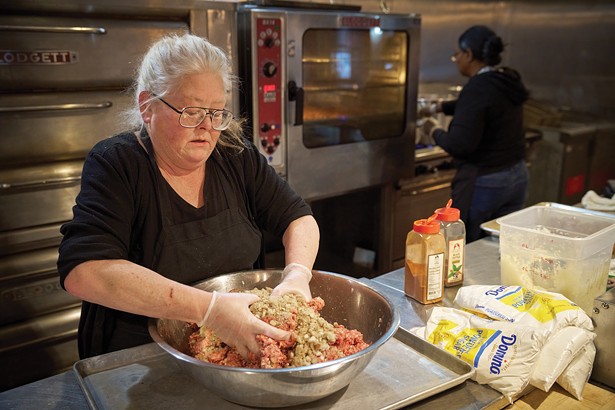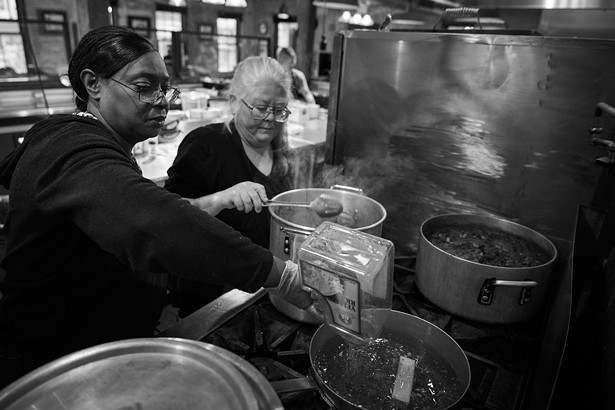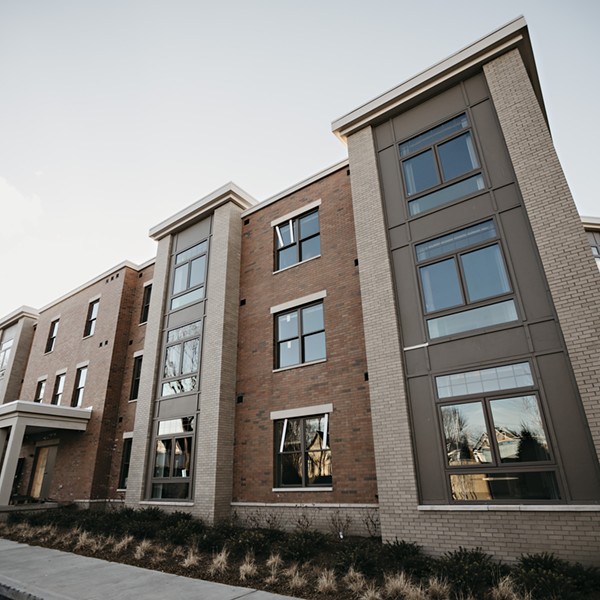Be a nice human. To grasp the mission of the Heroes Making Heroes program, I didn’t need to look any further than the t-shirt that director Victoria Loverchio was wearing when we met.
A part of Dutchess County-based affordable housing nonprofit Hudson River Housing, Heroes Making Heroes provides job training in food service and reintegration services to anyone who has or is currently experiencing homelessness. When the program began, it primarily employed veterans, who learned food service serving subs or hero sandwiches, giving rise to its name. The initiative has since expanded to serve all people experiencing homelessness and serves a broader menu.
The Heroes program participants gain employment experience preparing meals for people in food-insecure situations, helping to execute another facet of HRH’s community-oriented mission. The project is the brainchild of Tommy Zurhellen, commander of Poughkeepsie’s VFW and a professor at Marist. He founded Heroes after completing a nearly 3,000-mile walk across the United States in 2019 to raise awareness for increasingly alarming rates of suicide and homelessness among veterans.
The program’s current director, Loverchio, joined the Heroes team in March of 2022 with no professional qualifications but an abundance of training as the single mother of three daughters. “My life experience gave me the skills to be a jobs skill coach,” she says.
Her love for the cause and the people involved is evident as she touts the program’s success. “It all kind of fell into place,” Lovercio says. “We built a family with all of us and all of the different personalities.”
But beyond simply fostering the camaraderie of a family, the team behind Heroes Making Heroes has a pointed objective. This family, Loverchio boasts, has more than achieved its production goal, feeding close to 33,000 people at shelters and other housing sites throughout the Poughkeepsie area over the past year.
The Heroes team typically meets five days a week from 8am to 12p and produces anywhere from 150 to 400 meals a day. In addition to cooking the meals, their participants are responsible for menu planning, budgeting, shopping, and the distribution of the meals. They also learn practical kitchen skills like how to cut food, how to use a dishwasher, and how to clean and sanitize.
In just the one year that she’s worked with the program, Loverchio has helped seven participants graduate into gainful employment and an eighth is currently in the process of being hired as a full time cook for HRH. All participants receive stipends, which Loverchio explains are important because they provide the participants further incentive to work and the fulfillment of earning their own money. Currently, the program is low on stipend funds and seeking donations.
But at Heroes Making Heroes, the emphasis isn’t just on productivity. It's on the people, which is why Loverchio’s t-shirt describes the program’s mission so well. The HRH team doesn’t just teach their participants culinary and workplace comportment skills and leave them to continue their struggle on their own, explains Manny Concepcion, a veteran who has worked with Heroes Making Heroes since its inception. Heroes offers a full-time support system, one that doesn't fret the details.
The program is still relatively new and growing, so the majority of this support is not formalized. But if a participant is currently living in a shelter, Loverchio and her team will spend their free time searching for housing options. Or if a participant needs transportation or other essentials, they will volunteer what they can and search through other avenues to find what is needed. If someone comes to them looking for help, it's simply all hands on deck. “The program is something they can count on,” says Loverchio, describing a support system that is so sorely lacking for many vulnerable populations.
Even after a participant reaches a point where they are considered successful, the support continues. Concepcion shares the story of one of the program’s most successful participants. Joseph had spent two years in a homeless shelter before having his life changed by the program.
“He was feeling very lost,” explains Loverchio. “He came on board with us and didn’t really do much at first.”
But by easing him into the work with small tasks like preparing the kitchen for the next day and patiently helping adjust to the different personalities in the kitchen, just as he would have to do in the workforce, Joseph started to blossom. Now, Joseph works in maintenance for New York State and still spends his free time with the program. Twenty minutes before our interview, Joseph had called Loverchio to let her know when he would be moving into his new apartment.
But even in this success story, Heroes Making Heroes is far from being done helping. After all, Loverchio’s title is Job Skills Coach. “If he ever has an issue at work, he can call me and I can interact with his boss and make sure they are doing okay,” she says.
Perhaps Loverchio and her team's greatest service is believing in the potential of the participants more than they even believe in themselves. She says of Joseph: “His skills got so advanced in the kitchen that he could have done prep for a cook. I could see him moving on to that. I tried to talk him into it.” For now, Joseph and his support system are content with his return to work but have their sights set on even greater things for him and for the program.
As the program prepares to move from the Poughkeepsie Underwear Factory to a kitchen at Hudson River Housing’s Hillcrest location for more consistent kitchen availability, its focus remains on bringing in more participants and more money for stipends. Stipends allow the program to serve as a source of income for their participants while they prepare to reenter the workforce.
Whether their participant is a veteran in need, a homeless person, or someone who has just aged out of foster care, Heroes Making Heroes strives to offer the foundation to propel them forward into the next phase of their life.
As Concepcion put it: “Everybody needs a home base.”





















